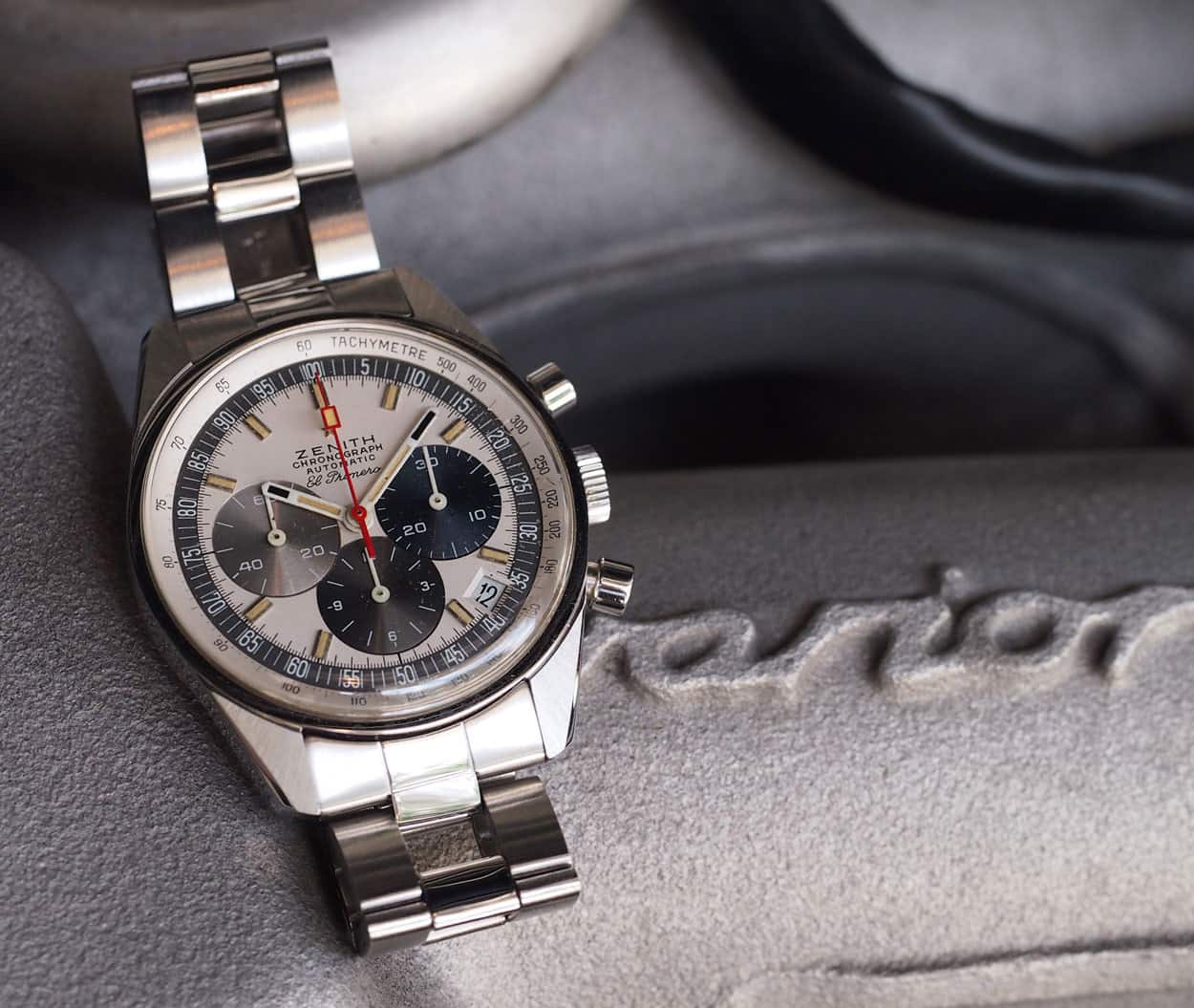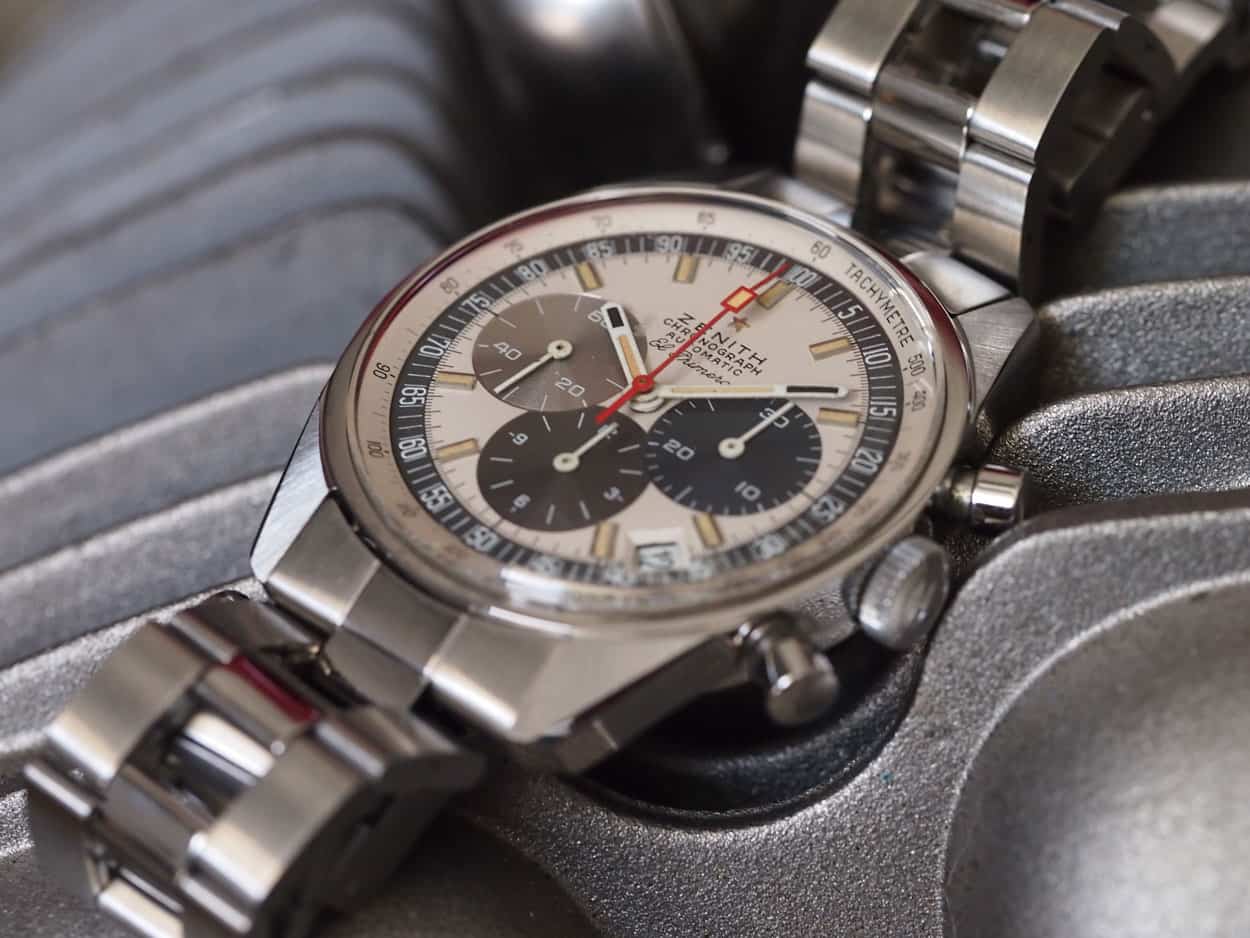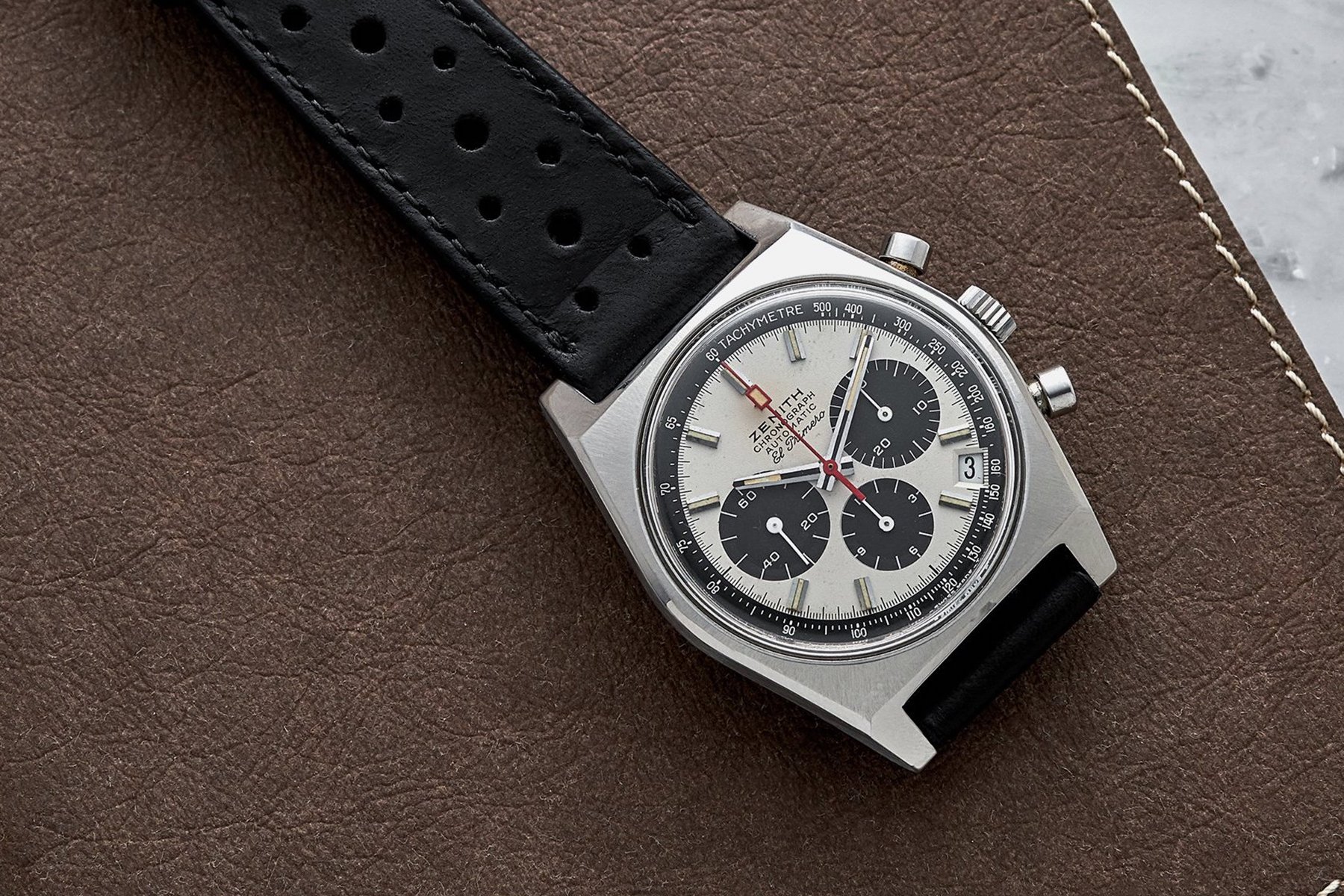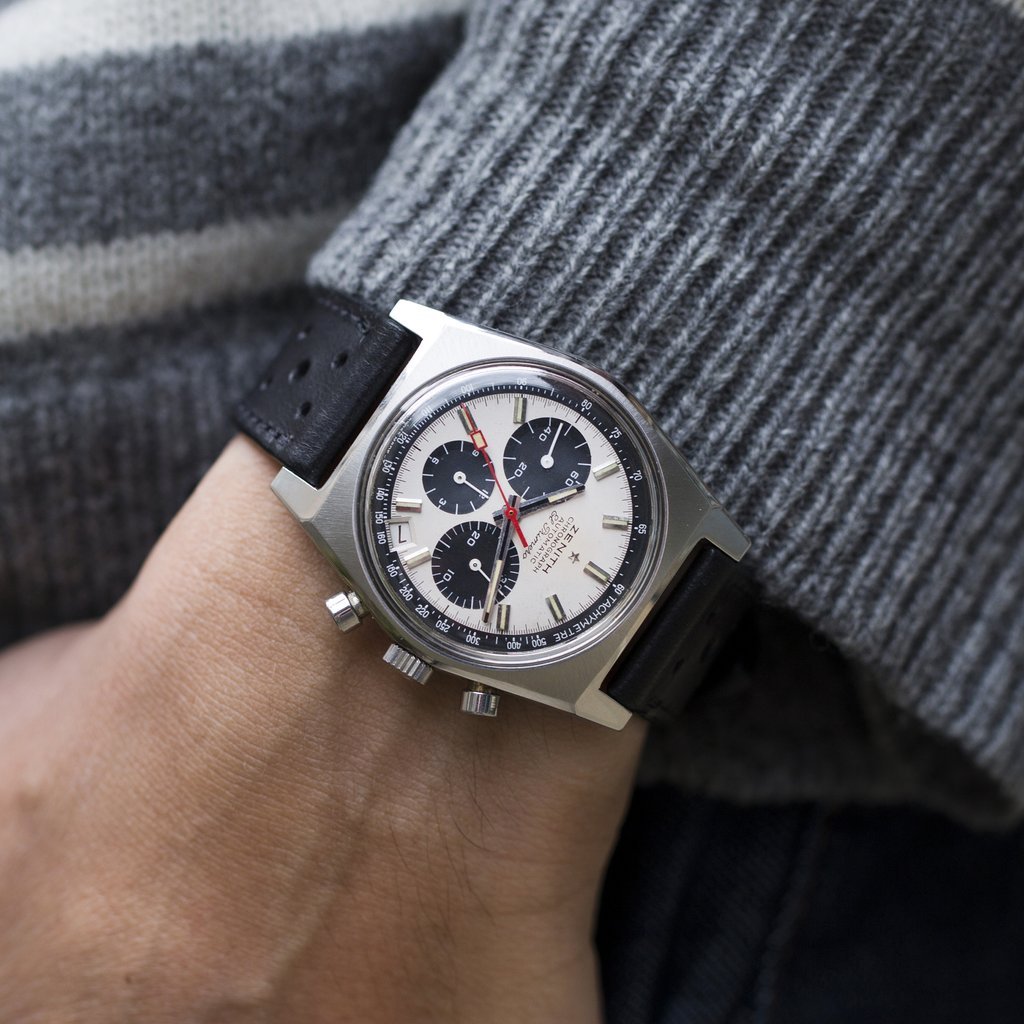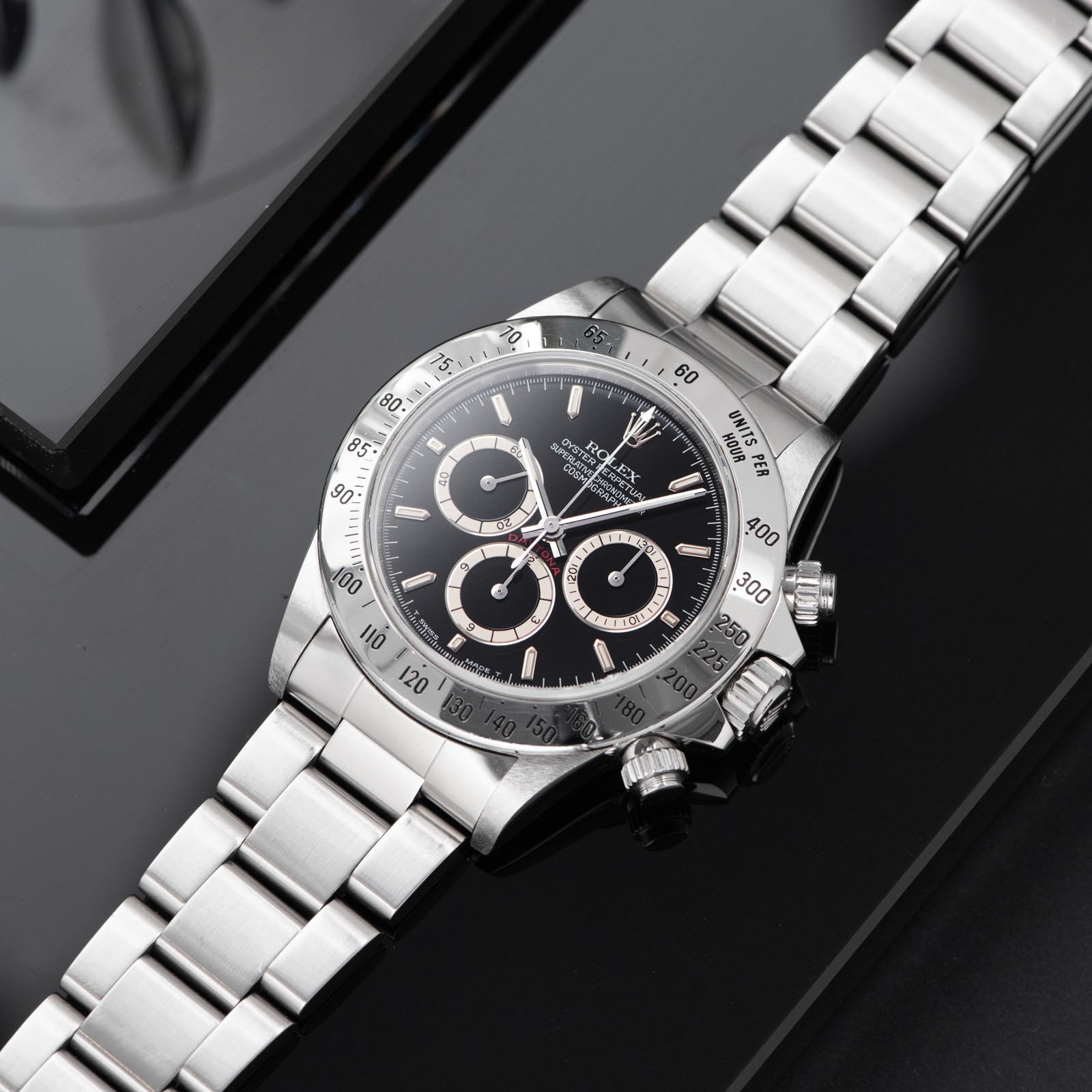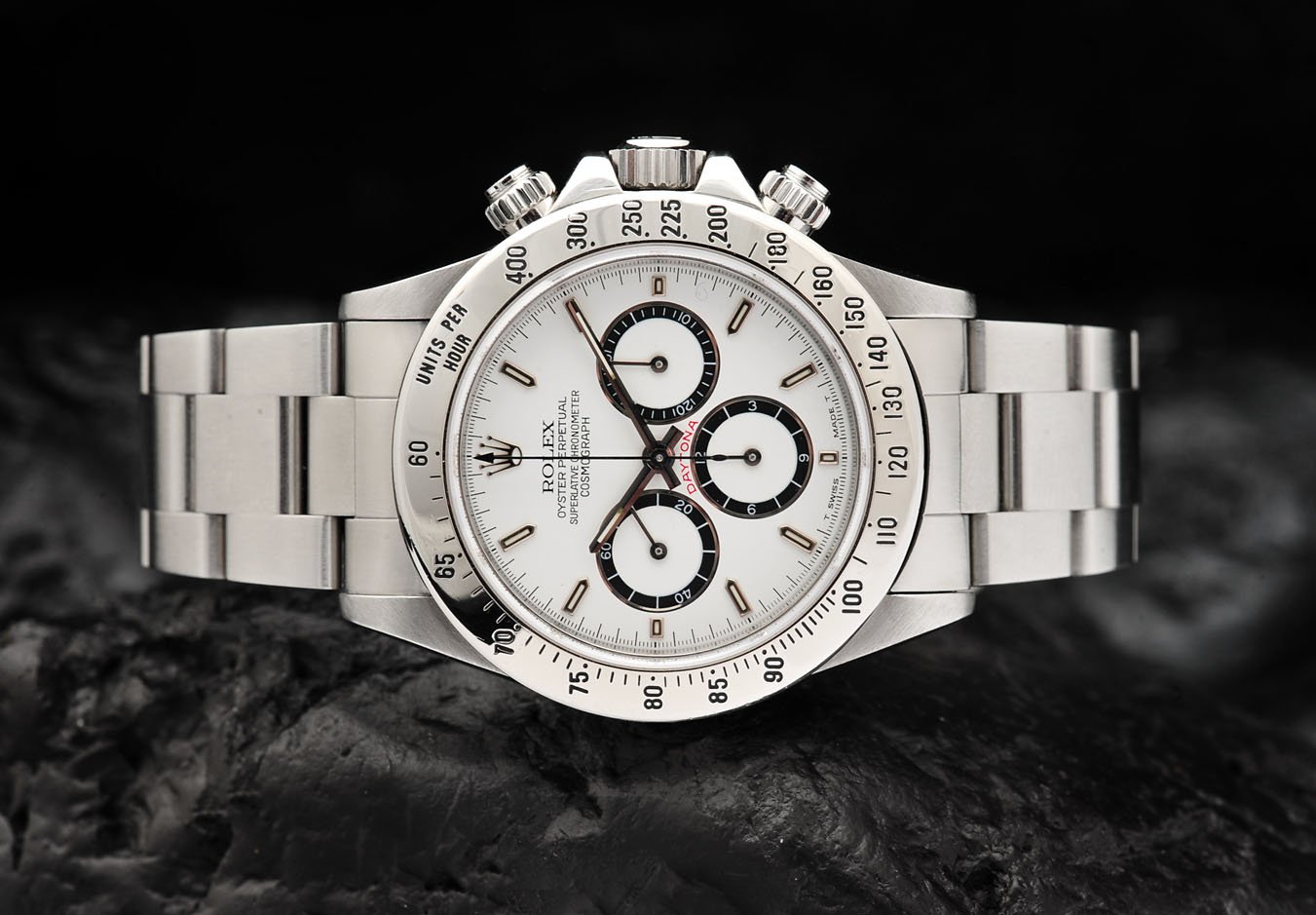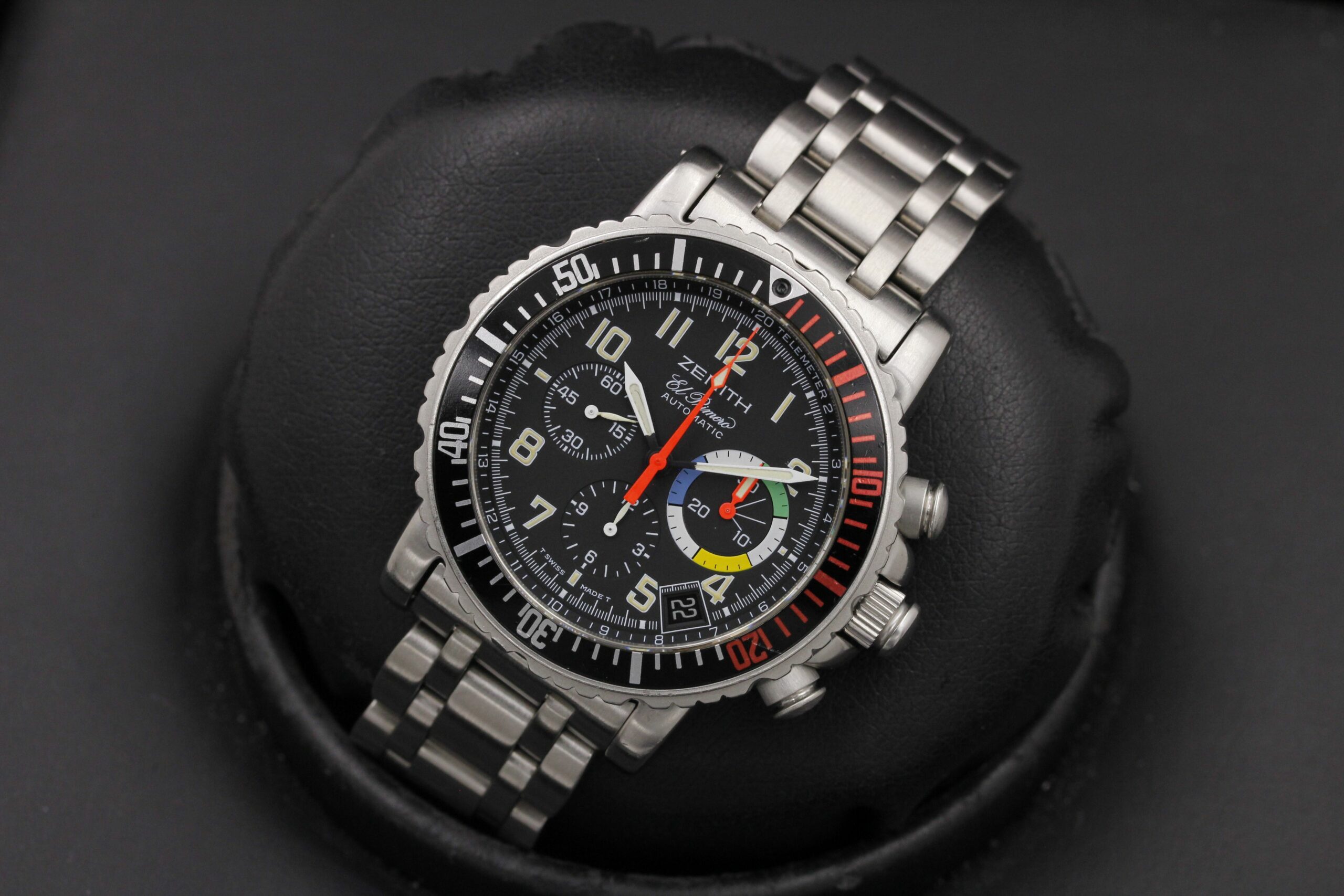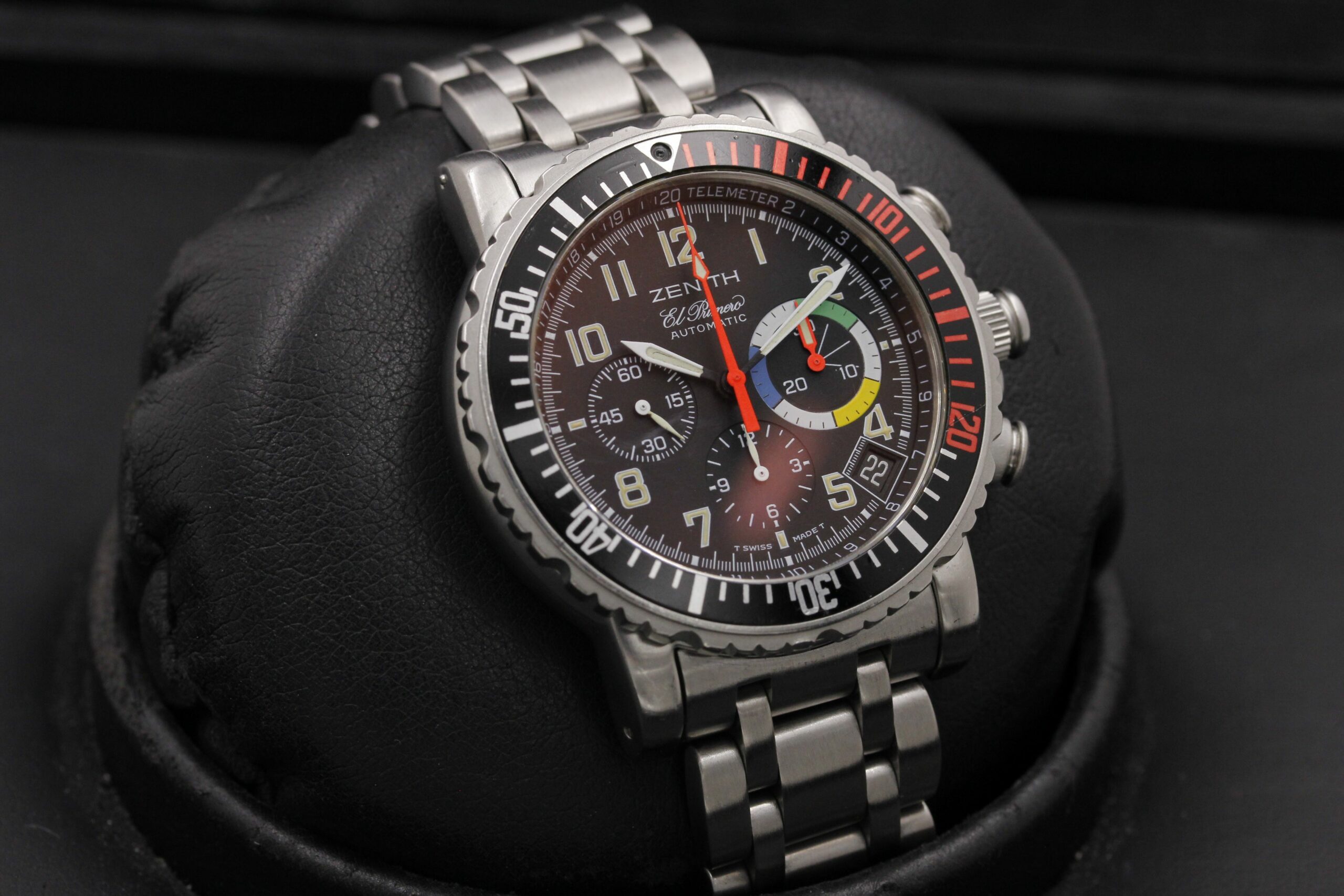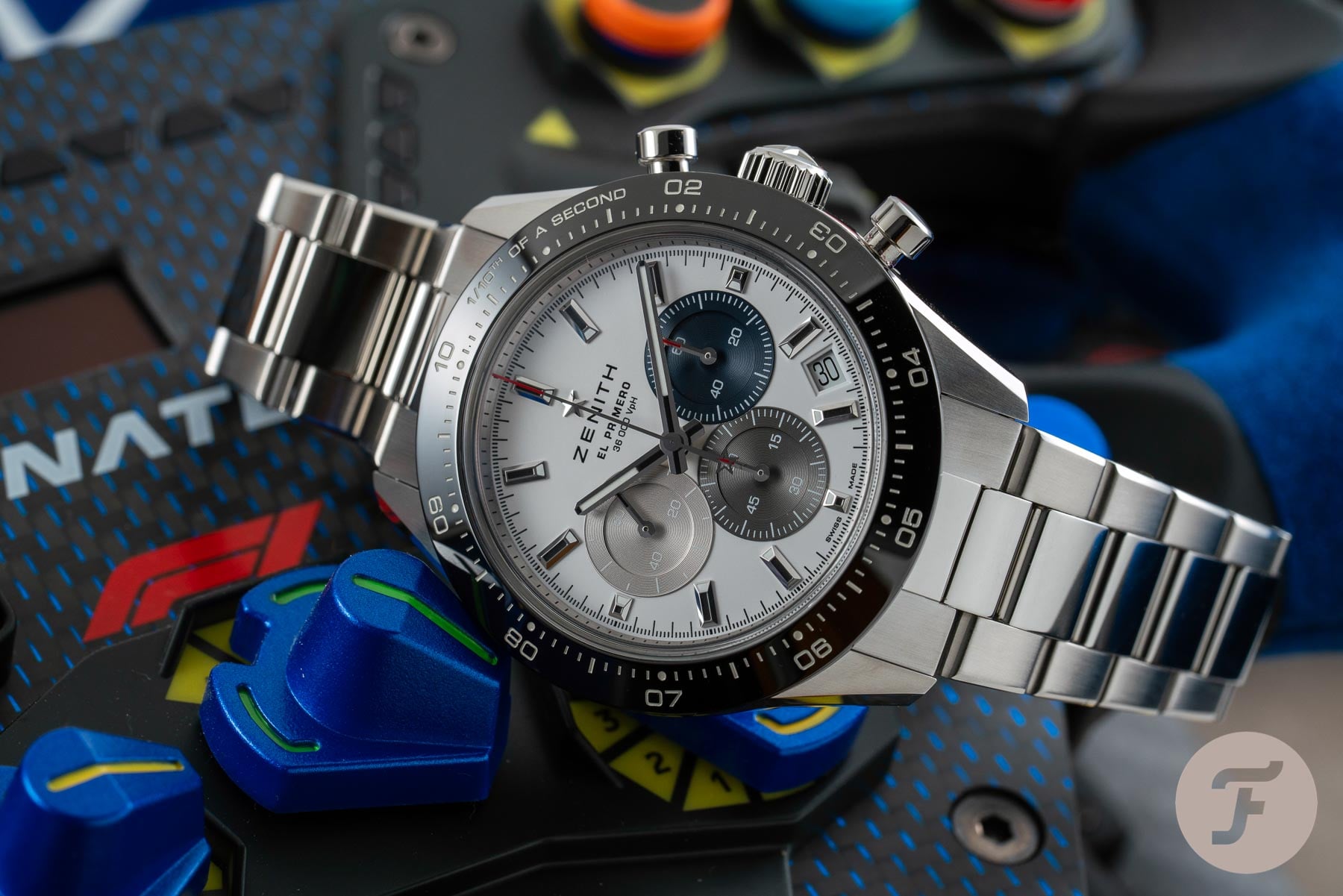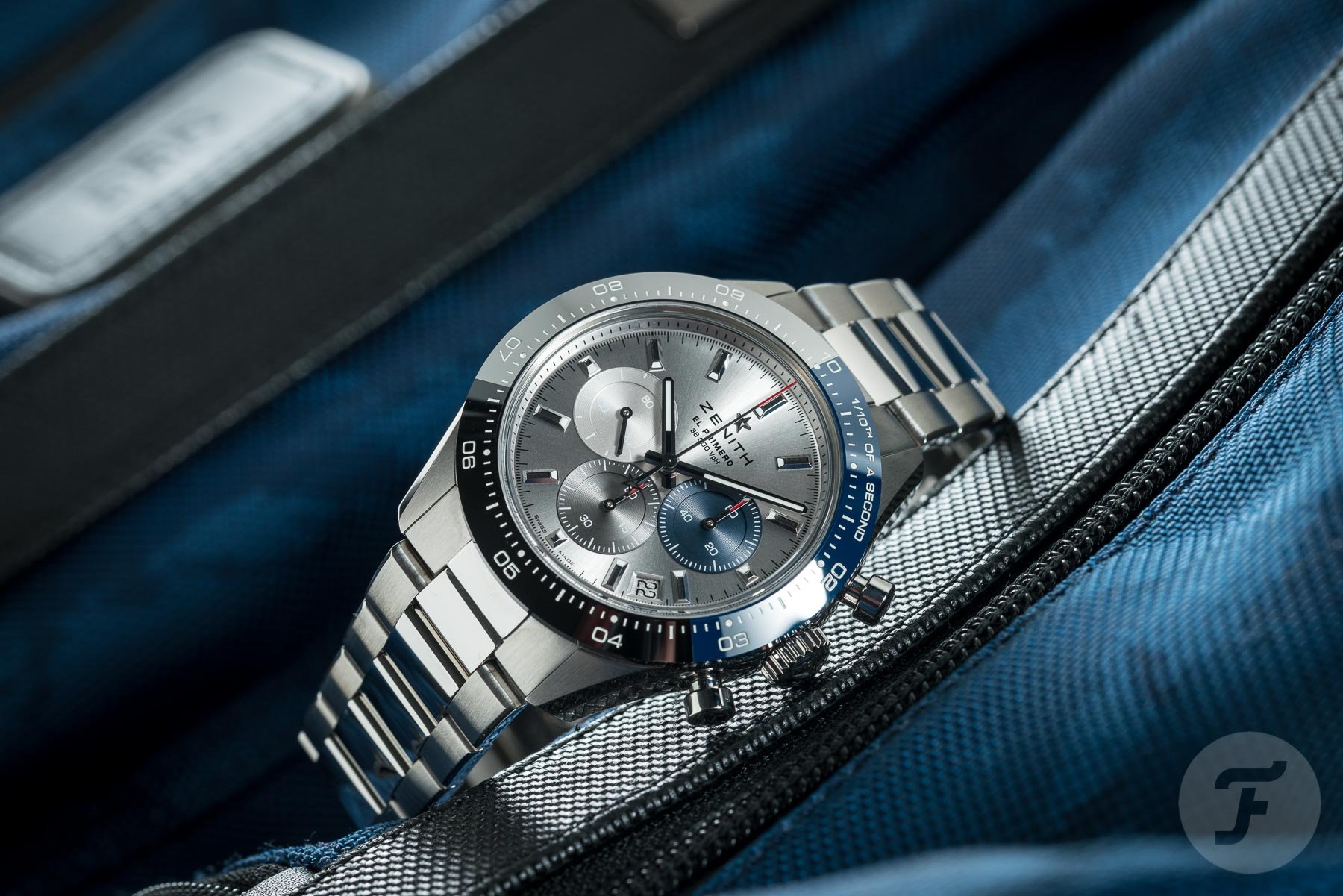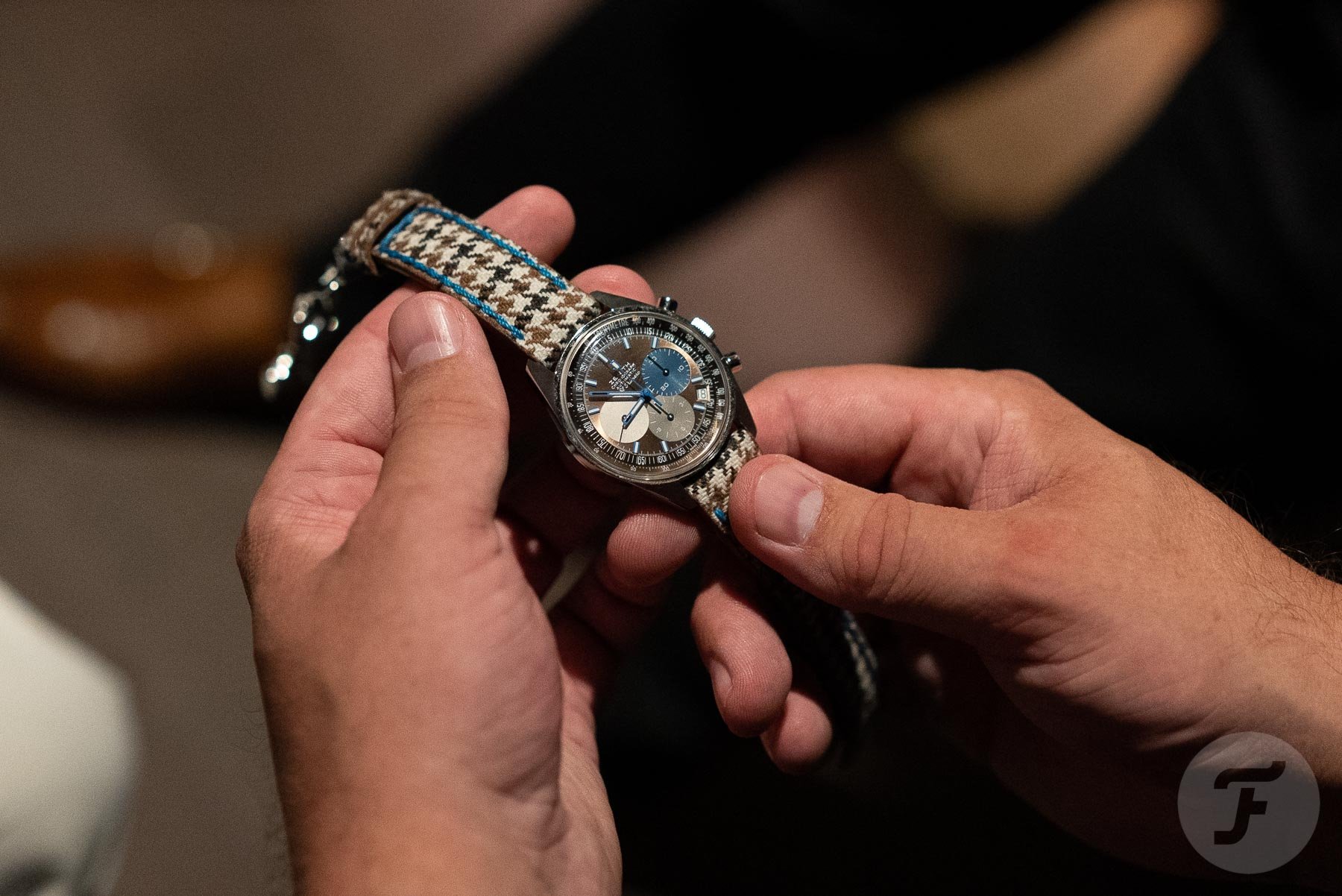Fratello’s Top 5 Zenith El Primero References Ever Produced
Another Friday, another Top 5! In this series, we take one classic watch and choose our five favorite references ever produced. Four of these references will be based on the historical importance of the specific watch in the grand scheme of things. Though there may be some overlap, it’s not a question of which references are the most collectible or of the highest value on the market. The fifth pick is our Fratello favorite that takes the current market price and collectability into account, potentially making it a sleeper reference. As such, the last pick could be described as our wild card. In this new installment of the series, we will look at the Zenith El Primero. What are the top five references using the brand’s famous chronograph movement?
When discussing the Zenith El Primero, we essentially discuss a movement series rather than a specific model or model line. We thought about making it about the latter but then decided it’s way more fun to look at the different models that Zenith created with El Primero movements. But it also presents a big challenge. Zenith produced a wide array of models with an El Primero movement, so a five-watch selection will always give just a glimpse of all the great timepieces that qualify for this list. This is why we have focused on four models that have been elemental in the success of the Zenith El Primero. The fifth, as always, is our wild card reference. Let’s jump in!
Zenith El Primero A386
Undoubtedly, the most iconic Zenith model and, therefore, also the standout of the original trio of Zenith El Primero watches is the El Primero A386. This reference is a sports chronograph that is truly one of a kind in the industry. Its biggest standout feature is, without a doubt, its unique dial. But there is a lot more to the watch than just that. It starts with the 38mm round case with its long lugs and slim profile. That slim profile was made possible by the El Primero movement. As most of you will know, in the industry-wide race to introduce the first automatic chronograph, Zenith developed its fully integrated, high-frequency, automatic chronograph movement, codenamed Calibre 3019 PHC.
The movement operated at 36,000vph, featured 31 jewels, and provided a 50-hour power reserve. The big eye-catchers of the dial are the overlapping blue, light gray, and anthracite registers. They define the look of the A386 and have become synonymous with the Zenith brand. In addition, the red central chronograph hand brought some extra zing, and the Gay Frères bracelet, as Mike explained, not only gives the watch character but is also a great-quality bracelet that is reminiscent of the great Rolex Oyster bracelets in some aspects. Zenith produced roughly 4,500 pieces of the A386 between 1969 and 1972, and they go for roughly €15K–30K on the market today. It buys you one of the most celebrated chronographs ever produced.
Zenith El Primero A384
If the El Primero A386 is the definitive El Primero chronograph, the A384 is the definitive design statement. While the A384 and the A386 are technically similar, they are completely different in the way they look. I love both of them, but my heart is with the A384. It’s a statement that I adore with its boxy case, panda dial, and Gay Frères bracelet. The combination of elements makes this an instantly recognizable classic. As I explained in the Buying Guide article about the best Zenith watches from the 1960s, it wasn’t love at first sight. The A384 features a 37mm blocky case design that, for a long time, felt too simple and stuck in the late ’60s and early ’70s.
As time passed, however, I started loving the highly effective and rather simple lines. They create a great canvas for the dial, hands, and pushers to shine. The silver panda dial with the black sub-dials and a black outer ring holding the tachymeter scale is simple but highly legible. The sub-dial at 6 o’clock is slightly smaller, which creates a nice dynamic, and the central red chronograph hand is a nice splash of color that stops the dial from becoming boring. And the A384 looks amazing on the iconic ladder bracelet and a leather strap. The A384 was also the watch that sparked other classics like the A385 and the A3817 and A3818 “Cover Girl” in the 1970s. Additionally, it turned out to be the perfect canvas for some recent highlights like the Lupin The Third series, the reissues of the “Cover Girl” and the A3817, the Chronomaster Revival Shadow, and the Safari models.
Rolex Cosmograph Daytona ref. 16520
You probably did not see this one coming. And honestly, it’s a pick with a twist and a smile, of course. But there is no denying that the Rolex Daytona ref. 16520 was pivotal in the revival of the El Primero movement. If Rolex had not placed the order for thousands of El Primero movements, you could ask whether Zenith would have looked the same today. On top of that, the Daytona ref. 16520 is one of the most important Daytona references ever produced. It marked the change from the manual-winding Daytona era to the modern era of automatic Daytona. Rolex introduced the first automatic Daytona in 1988, replacing the legendary manual-winding refs. 6263 and 6265.
The new Daytona was different in all aspects. It featured a bigger 39mm case with an updated design for the bezel, dial, and bracelet. While the link to the previous Daytona references is still visible, it is probably one of the most drastic design steps that Rolex ever made to evolve one of its models. But the true revolution came in the form of the caliber 4030 that powered the new Daytona. Rolex modified the standard El Primero movement to fit the brand’s performance standards, as I explained in the Buying Guide for the best Rolex models of the 1980s. Despite the changes, the “Zenith Daytona” was powered by the El Primero movement. And by using the movement, Rolex played a big part in the revival of the caliber in the late 1980s. It sparked the return of the El Primero, and Zenith celebrated with the introduction of the El Primero De Luca that same year.
Zenith El Primero Rainbow Flyback Chronograph ref. 02.0480.405
Another pivotal release in the Zenith El Primero lineage is the El Primero Rainbow Flyback Chronograph. The watch was introduced at Baselworld in 1997 and made an immediate impact. But the first Rainbow models actually came out five years earlier in 1992. The Rainbow series was introduced as a series of waterproof sports chronographs. With the introduction of the El Primero Rainbow Flyback Chronograph, that story changed slightly. The French Air Force was looking for a new pilot’s chronograph, and Zenith decided to change its Rainbow Chronograph to meet the requirements. But when Zenith presented the new watches, the French Air Force had no budget to buy them. That’s when Zenith decided to introduce the model to the public.
In developing the piece, the brand first created the caliber 405, the standard El Primero caliber 400 equipped with a flyback function. The earlier Rainbow model’s screw-down pushers were replaced with regular pushers, the bezel was given irregular grooves for a better grip, and the minute counter was executed with aeronautical sector colors. Furthermore, the first 20 minute markings on the bezel insert were made red, and the central chronograph seconds hand was executed in bright red. Finally, Zenith used a fully satin-brushed case and bracelet and replaced the sailing ship on the case back of earlier models with the Zenith crest. At 40mm wide and 12.6mm thick, this is not a chunky watch but a nicely sculpted creation that perfectly fits the wrist. Expect to pay roughly between €4K and €6K for this colorful stunner.
Zenith Chronomaster Sport
The last pick for this list is our wild card, and it might be one that you didn’t expect. Judging by the first reactions within the Fratello team when the Chronomaster Sport first came out, we didn’t either. The Zenith Chronomaster Sport felt like a construct and a far-fetched one at that. The dial of the El Primero A386 combined with the design influences of the Rolex Daytona seemed weird. Many referred to it as the “Zaytona,” even when Zenith drew our attention to three heritage models as the influences that combined to form the Chronomaster Sport. But after I had a chance to check out the new model up close and wear it for a bit, the Chronomaster Sport made much more sense. Once on the wrist, the watch feels like a Zenith, not a Rolex Daytona. And it felt very good on top of that.
The aesthetics and the movement are firmly rooted in Zenith’s eclectic history. It made the 41mm Chronomaster Sport feel like a nice surprise. Additionally, the special Boutique Edition with its tri-color bezel adds some funk to the show, and the two rose gold models offer plenty of luxury style. What connects them is the El Primero caliber 3600 that greets you as you flip the Chronomaster Sport over. Operating at a high-beat 5Hz frequency, the 3600 also provides 60 hours of power reserve. The beauty of this caliber shines best when observing the central chronograph hand traversing a complete cycle in ten seconds. Hence, the bezel allows the wearer to read the elapsed time to 1/10th of a second. This feature highlights the magic of the El Primero movements and why the watch is so relevant for this list as our majestic wildcard.
Final thoughts
There you have it — the best or most important Zenith El Primero references ever produced, according to us! The first four played a pivotal part in the legacy of the El Primero, and our wild card could very well be a modern classic. We realize that you might not agree with all the picks here. There are plenty of other El Primero classics that deserve a spot on this list. That’s why we would love this to be the start of a bigger discussion. Let us know your choices for the most relevant references in the development of the Zenith El Primero. We will see you next week for another Top 5 list of references for a different classic watch.

